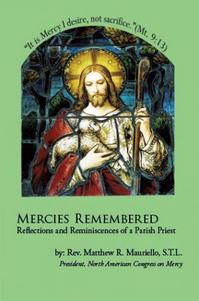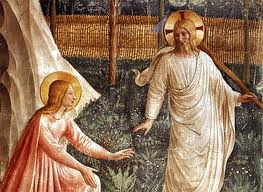 A recently published book of a parish priest, Mercies Remembered: Reflections and Reminiscences of a Parish Priest, is being presented at Waterbury’s Silas Bronson Library (267 Grand Street) December 6 at 6:30pm.
A recently published book of a parish priest, Mercies Remembered: Reflections and Reminiscences of a Parish Priest, is being presented at Waterbury’s Silas Bronson Library (267 Grand Street) December 6 at 6:30pm.
Tag: mercy
Saint Mary Magdalen: a witness to the “healing power of Christ’s tender mercy.”
“Everywhere in our culture, people seem so quick to condemn. It is very hard to find words of mercy or understanding for someone who has done something wrong, many good people out there saying things they know they shouldn’t be saying.
People make mistakes. They sin. Some people do evil that causes scandal and grave harm. We can condemn the offense and work for justice — without trying to destroy the person who committed the sin.
We need to reject every temptation to shame or condemn people. Let us never be the cause of turning someone away from seeking God’s forgiveness and redemption.
Let us pray for one another this week, ask the Virgin Mary to ‘give us a faith like Mary Magdalene and hearts to forgive.'”
José H. Gomez, Archbishop of Los Angeles
The Tidings, July 22, 2011
We remain images of Christ, no matter what happens…
A perplexing issue of one’s faith is accepting that no matter what we do, no matter who we become, we remain a son or daughter of God. There is no unforgivable sin except the sin of presumption against the Holy Spirit. We can do the most heinous of things, even deny God’s existence, we remain in Christ’s reach for mercy in His washing us with His own Precious Blood. History has several good examples of people doing terrible things to others and destabilizing society, but is it impossible to have mercy on these people? The question eventually becomes: Can a person who does evil things be forgiven and saved? Is forgiveness outside the realm of possibility for God, for us? If not for God, why is it that we find so difficult to be merciful toward others?
God’s glory (Rom 3:23) so that all of us are at some time in our lives
potentially (and unfortunately all too actually) capable of real evil. Yet no
matter how depraved people may become, they remain always images of Christ the
true Image of God. That image-quality may be soiled, tarnished, obscured and
disfigured, but is never wholly lost, never totally destroyed.
commit sin the more we weave a web around ourselves, voluntarily blocking out
his light. That is why in the incarnation God punched a hole in our self-woven
cocoon and thrust in a hand to drag us out: that is why Christ descended into
our hell of God-forsakeness – so that we could not go on pretending to
ourselves – and in that way justifying our own ghastliness to ourselves and
others.
Sacrament of Mercy Conference
A friend, the Rev’d Canon Matthew R. Mauriello, has organized the forthcoming Conference on the Sacrament of Mercy to be held in Milwaukee, 8-9 October. There are several excellent speakers to note.
Divine Mercy Sunday
In every age the Lord wants his mercy to be known to us. Over time you have no doubt noticed the Lord revealing Himself through the works of various saints: Saints Gertrude, Mechtilde, Margaret Mary Alocoque, Claude la Colmbiere, Fautina, and Blessed Francisco de los Hoyos. Most often the call to recognize divine Mercy has come in the devotion to the Sacred Heart of Jesus which we ordinarily devote the month of June to. Today is the fruit of Saint Faustina’s mission to make known Jesus’ invitation to enter into His heart.
Ted Kennedy: mercy or damnation? What do real Christians think?
In the week since the obsequies for Edward Kennedy, Senator, not a few self-appointed ministers of God’s justice and mercy have rendered their judgement: the Senator should not have been buried using the rites of the Catholic Church. Interesting.
Divine Mercy
 On one occasion Saint Faustina heard these words of the Lord:
On one occasion Saint Faustina heard these words of the Lord:
“My daughter, tell the whole world about My Inconceivable mercy. I desire that the Feast of Mercy be a refuge and shelter for all souls, and especially for poor sinners. On that day the very depths of My tender mercy are open. I pour out a whole ocean of graces upon those souls who approach the fount of My mercy. The soul that will go to Confession and receive Holy Communion shall obtain complete forgiveness of sins and punishment. On that day all the divine floodgates through which grace flow are opened. Let no soul fear to draw near to Me, even though its sins be as scarlet. My mercy is so great that no mind, be it of man or of angel, will be able to fathom it throughout all eternity. Everything that exists has come forth from the very depths of My most tender mercy. Every soul in its relation to Me will I contemplate My love and mercy throughout eternity. The Feast of Mercy emerged from My very depths of tenderness. It is My desire that it be solemnly celebrated on the first Sunday after Easter. Mankind will not have peace until it turns to the Fount of My Mercy.” (Diary 699)
Mercy can be challenging, to some
An article by Father Julián Carrón, President of the Fraternity of Communion and Liberation, has been published by the Italian daily, Avvenire. The article is titled “A Challenging Mercy” and is related to the letter Pope Benedict addressed to all Bishops after the polemics about the lifting of the excommunication of bishops in the Society of St. Pius X. I recommend the article.

